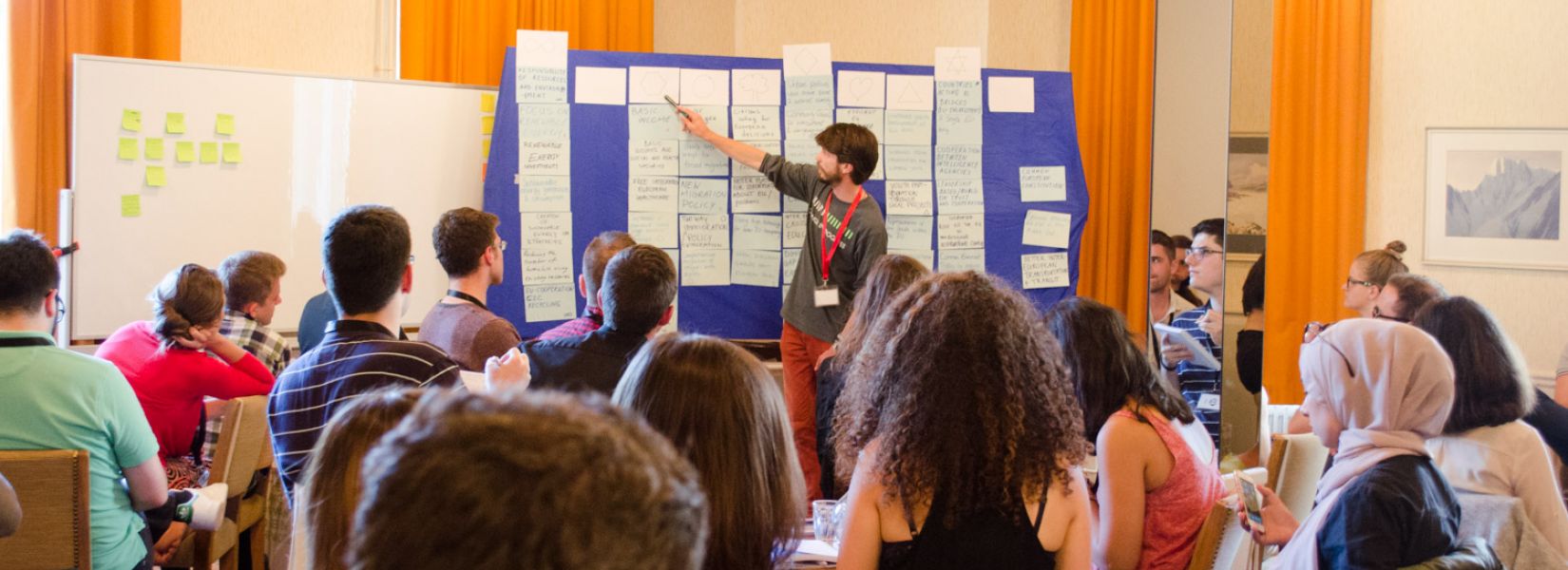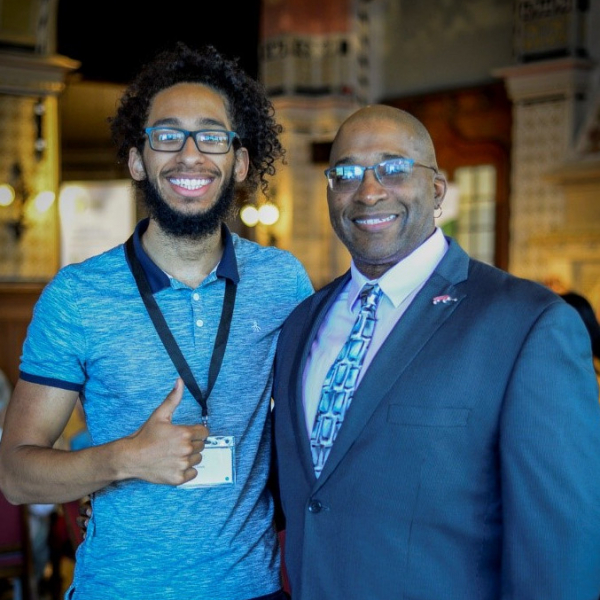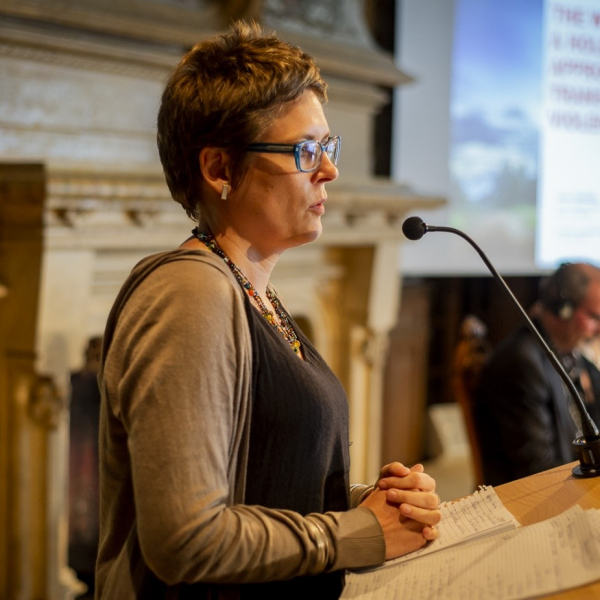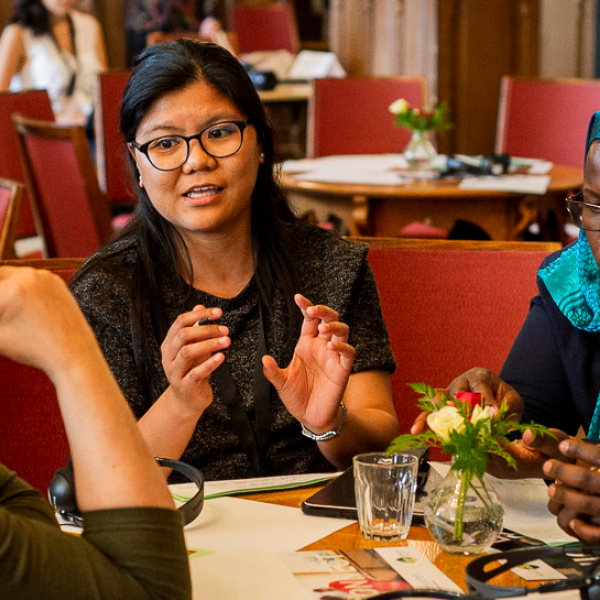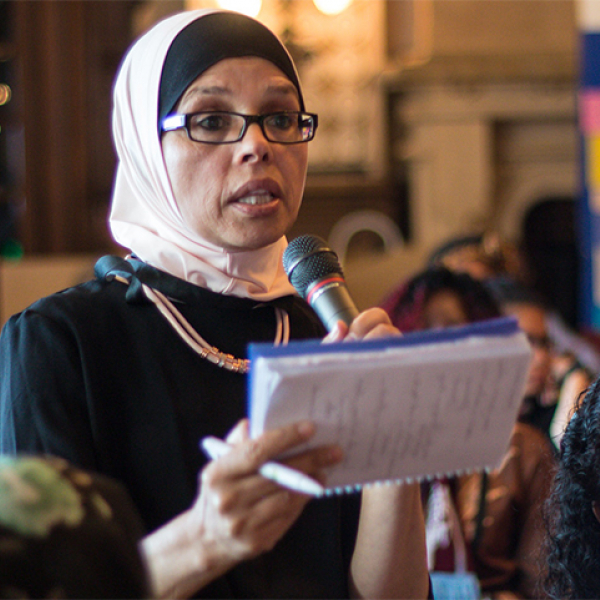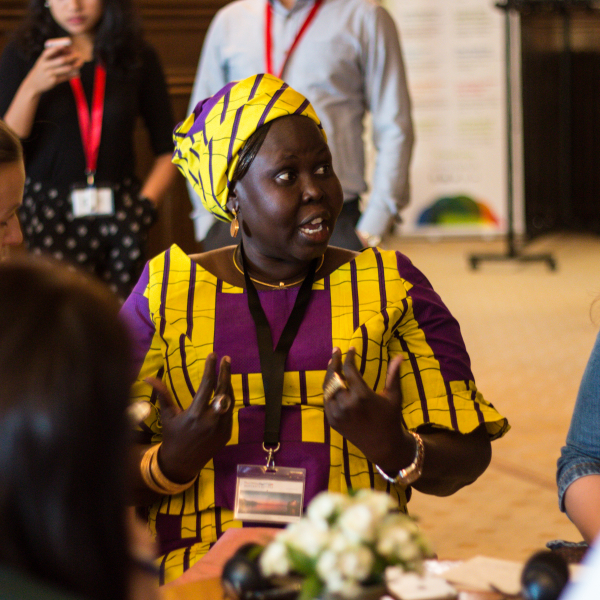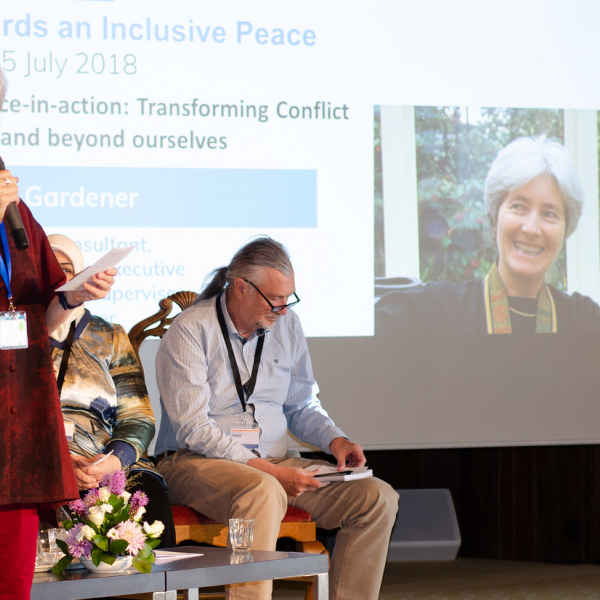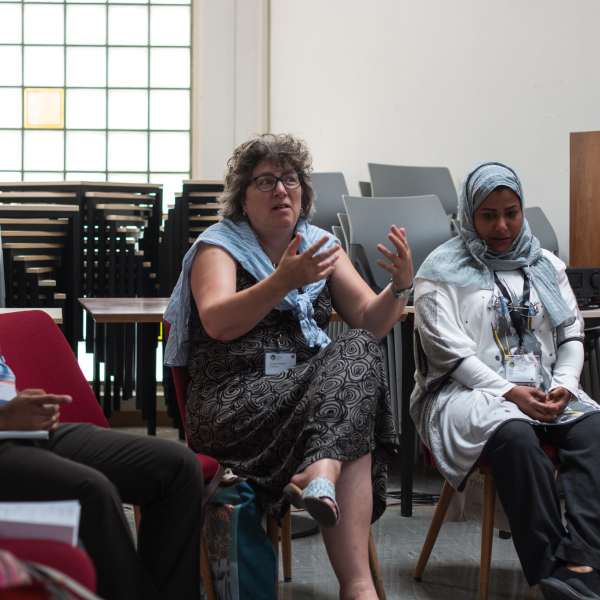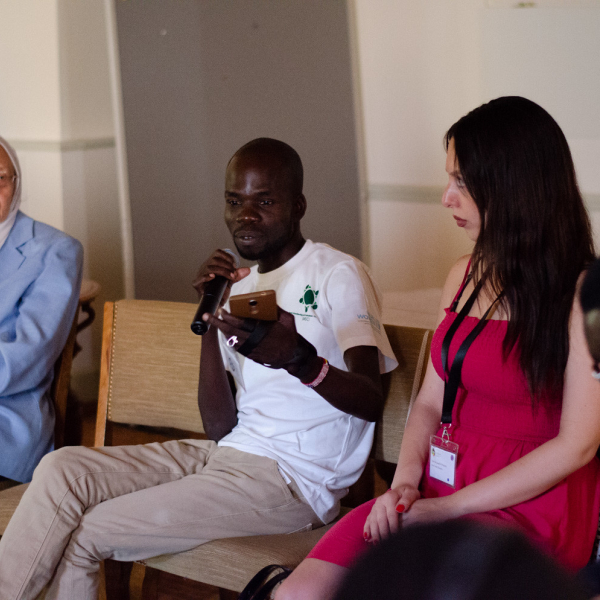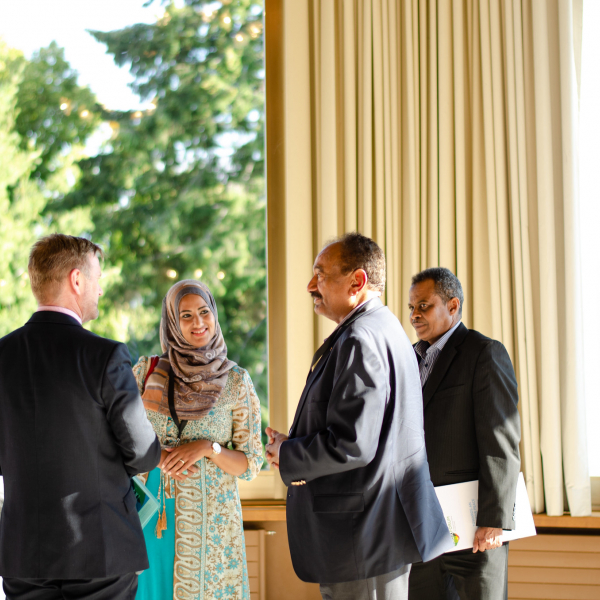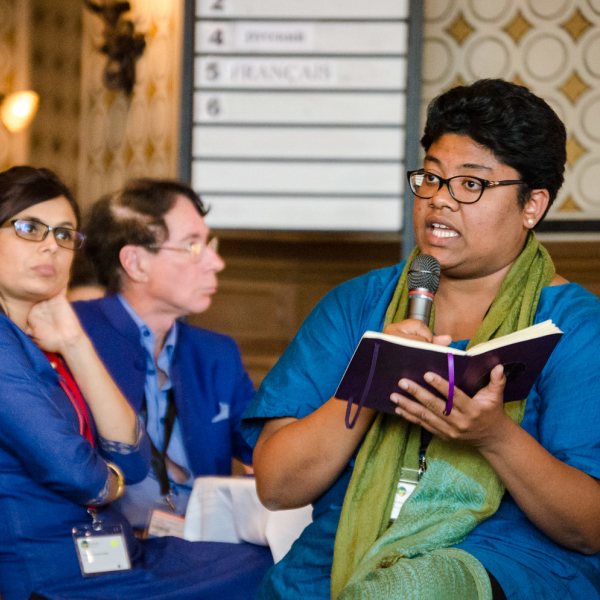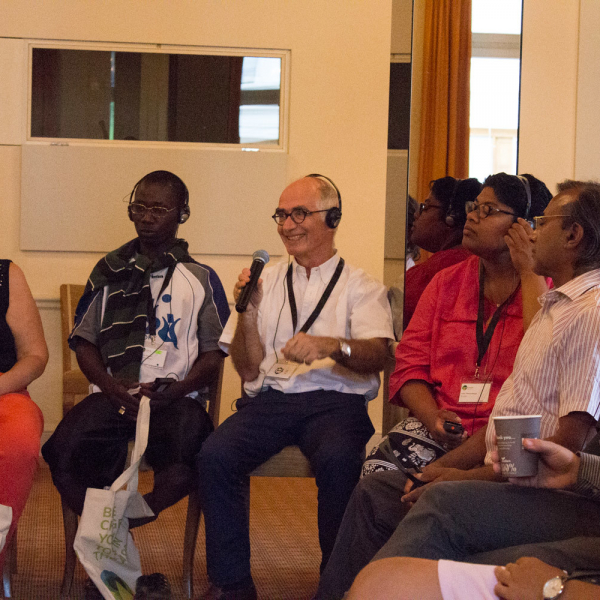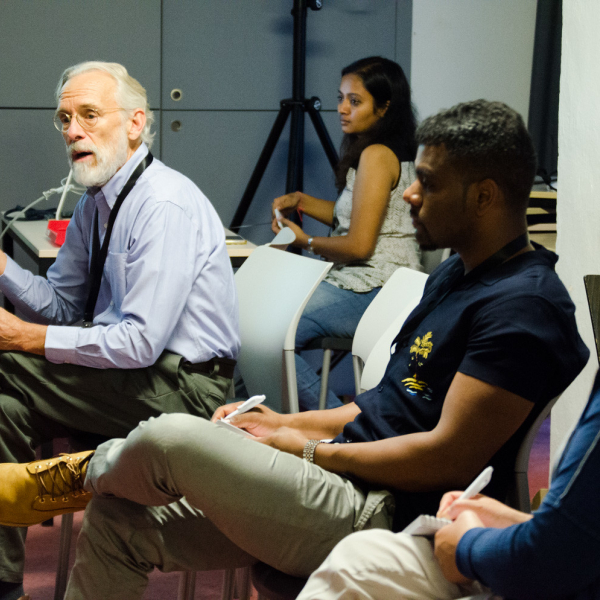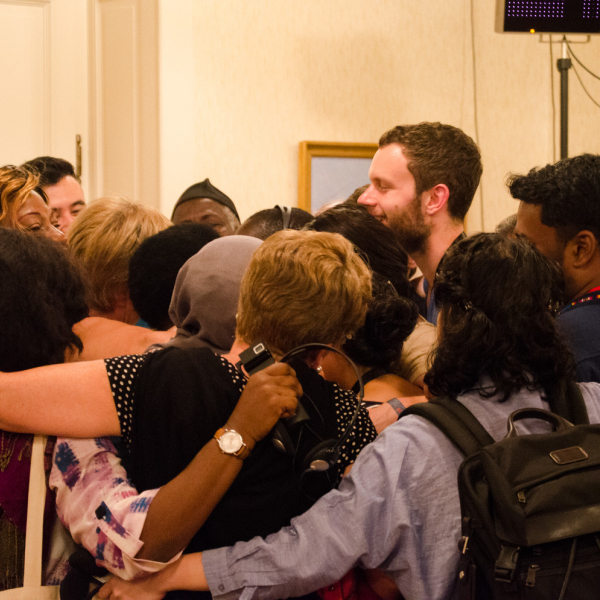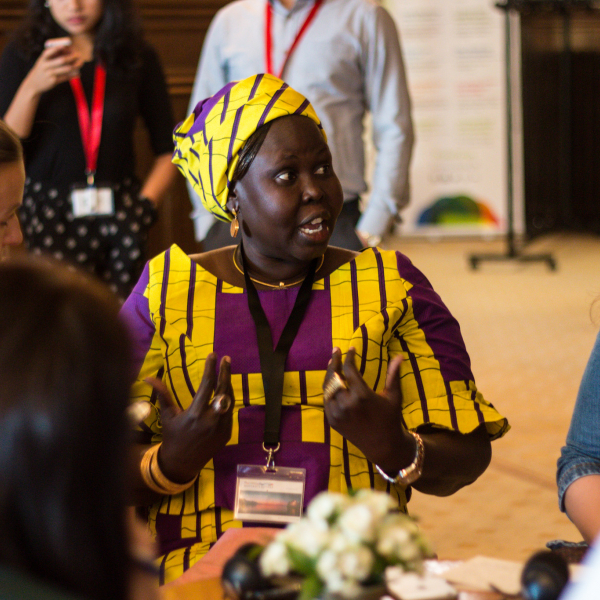Restoring communities to achieve sustainable peace
Towards an Inclusive Peace 2018
16/07/2018Violent extremism touches communities around the globe. There is a need for ways to reintegrate those who have committed violent extremist acts back into their communities. So Towards an Inclusive Peace (TIP) 2018, part of the Caux Forum, explored the power of restorative justice as a peacebuilding approach to transforming violent extremism. Nearly 150 people from over 40 countries took part from 11 to 15 July. In addition to those who had come specially for the event, the 2018 Caux Scholars acted as co-facilitators, helped with logistics and ensured the conference’s success.
‘There’s never been a more crucial time for working to create a more inclusive society,’ said Amina Khalid,head of IofC UK’s Sustainable Communities programme and a trustee of Somali Initiatives for Dialogue and Democracy (SIDD). Inclusive peace means bringing to the table religious leaders, activists, youth from all walks of life to create sustainable and lasting change. Participants heard from counter-terrorism and community policing expert David Smart, Superintendent in the National Counter-Terrorism Policing HQ in the UK, who stressed that ‘tackling extremism is a team effort’. Restorative justice practices such as narrative change, peace circles and dialogue techniques can help facilitate more inclusive processes in communities around the world.
Mohamed Abu-Nimer, senior adviser to the KAICIID Dialogue Centre in Vienna, stressed the role of inter-religious dialogue in creating inclusive social structures which are resilient in the face of violent extremism. KAICIID’s programme manager Moise ‘Mike’ Waltner ran a two-day workshop, which offered tools and techniques to help participants engage in inter-religious dialogue to bridge divides in their own communities. Other participants took part in restorative justice circles led by Thalia González.
Melinda Holmes, senior adviser and programme manager of the International Civil Society Action Network (ICAN) offered a three-day workshop on gender perspectives in peacemaking. She examined the different roles men and women play in conflict situations and the different ways extremism affects them. For example, women who lack agency due to social structures can become more vulnerable to violence. Participants also learned about ICAN’s Better Peace Tool, which seeks to create more inclusive peace processes by putting the lessons of gender perspectives into practice.
TIP also offered training in self-care, including presence-in-action, human rights education, peace circles and more. These sessions focused on the way personal transformation and inner peace are linked to community-building and creating a shared understanding within a community. Global peace starts with inner peace, and personal change can create global change. As Barbara Hintermann of Initiatives of Change Switzerland explained at TIP’s opening, ‘At Caux, we believe change comes from within.’ If we are truly to create an inclusive peace, we must start by creating space for inclusivity in ourselves and in our own communities.
In 2019, Towards an Inclusive Peace will focus on integrated approaches to transforming violent extremism. Join us from 9–14 July 2019 as we examine the role of resilience in creating inclusive communities, through a holistic focus on prevention.
- Watch the interview with Chelsea Higgs Wise, Narrative Change Officer of the Truth, Racial Healing & Transformation enterprise from Initiatives of Change USA here
- Read the daily blogs and discover TIP as it happened
- Watch the interview with Melinda Holmes, Senior Advisor and Program Manager at the International Civil Society Action Network (ICAN) here
- Find all the pictures of the event on Flickr
- Find out more about Towards an Inclusive Peace 2018
- Discover the reports and highlights 2018
